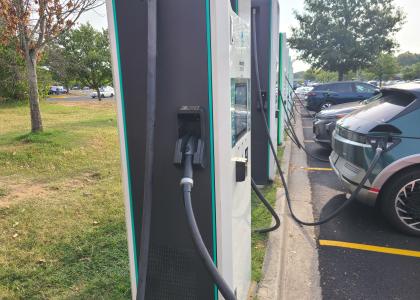Decarbonization of industrial manufacturing, including substantially reduced reliance on fossil fuels for industrial process heat, is necessary to meet economy-wide emissions reductions goals in the United States. Renewable energy generated from wind turbines and solar photovoltaic panels is rapidly contributing more to the American power supply as the power sector transitions toward a net-zero emissions grid. To accommodate and take advantage of the inherent variability of wind and solar energy resources, industry needs to change the way it manages energy. For the near term (present day–2030), we have identified a set of commercially viable tools that can be deployed now and will have a substantial impact on the carbon intensity of industrial processes. The optimal tools vary by geographic location, industry subsector, facility size, and energy market. We also highlight the key roles that third-party stakeholders and solutions providers are playing in facilitating early-stage industrial decarbonization efforts. Our report concludes with three scenarios that support utilization of renewable power to meet industrial energy demand: (1) efficient, beneficial electrification of industrial process heat; (2) monetizing flexible industrial loads; and (3) building networks of social and economic support to advance industrial decarbonization.
Download the report
| Suggested citation: |
| Johnson, A., A. Hoffmeister, and E. Rightor. 2023. Clean Power for Industry: Unlocking Flexible, Renewable Energy for Industrial Heat Processes. Washington, DC: ACEEE. aceee.org/research-report/I2302. |






